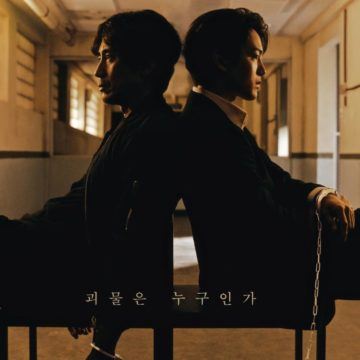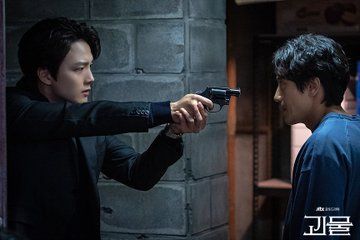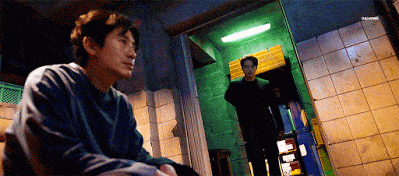by Brooks Riley
Time is a double-jointed trickster, bending this way and that to elude the tempi of one’s needs.
 Time isn’t what it used to be. The pandemic has altered our perception of it. This is why time is no longer quite as valuable as it was before we were suddenly assaulted with too much of it. It used to be a commodity in short supply. It’s even been called a currency (time is money), but the reverse was never true. No matter how many billions Mr. Bezos has, he has no more hours in his day than I do.
Time isn’t what it used to be. The pandemic has altered our perception of it. This is why time is no longer quite as valuable as it was before we were suddenly assaulted with too much of it. It used to be a commodity in short supply. It’s even been called a currency (time is money), but the reverse was never true. No matter how many billions Mr. Bezos has, he has no more hours in his day than I do.
Utilization of time has also changed. Novels still require the same amount of time to read as they always have, but audiobooks actually slow down the storytelling process: Where eyes once flew over the page, a human voice now dictates the pace at which we enjoy the authorial content as we keep our eyes on the road and our hands on the wheel.
All this leads to the question of just how our grasp of time or time-passing has been altered aesthetically by the convergence of that motherlode of time, the pandemic, with the rising popularity of elongated storytelling formats like TV series—those time-indulgent, episodic ways to weave a tale, unhurried by a two-hour time limit. Where movies used to define—and confine—our consumption of a narrative, series now populate the streaming platforms, becoming increasingly dominant in the menu listings and more sophisticated in their dramaturgy.
They get no respect.
A filmmaker I admire, Paul Schrader, in a recent New Yorker interview, maintains the view of movies as the only valid artistic format, one that he sees threatened by the “writers’-room” output he supposes TV series to be. Screenwriting by committee may indeed be a fact of life in Hollywood, which has always tended toward a system of multiple credits for both movies and television. But in other parts of the world, especially South Korea, a writer generally works alone, even if she (very often it’s a she) has to deliver 16 episodes.
As artistic endeavors TV series have been hiding in plain sight. One has only to think of Edgar Reitz’s Heimat (1983) or Rainer Werner Fassbinder’s Berlin Alexanderplatz (1980) to realize just how compelling this format could be. Now that streaming services have liberated TV series from their weekly viewing slots and the concomitant agony of cliffhanging suspense, interest in them has exploded. So has binge-watching.
The more accustomed we become to series, the more movies seem like wham-bam-thank-you-ma’am versions of a tale, what Schrader prefers to call “concise stories which land like a punch in the face,” hinting that a distilled narrative is better than free-flowing dramaturgy. But isn’t that also the fundamental difference between a short story and a novel? There are subtle levels to be plumbed in a work that takes its time to unfold over multiple episodes (like chapters in a novel), in a cinematic vessel loaded with conflicts and denouements as well as relevant diversions no movie would make time for. Time regulates the speed limit of a story, as well as the distance it travels. Series provide more than enough time to travel quite far.
 Time plays a role in the new K-drama Beyond Evil, about murders and disappearances that have occurred in the backwater town of Manyang over a twenty-year period. But time here is unrelated to tempo. On the contrary, time seems to be standing still in this forgotten cold case of a town, leaving the inhabitants in a suspended state where everyone is suspect and therefore no one is. It’s difficult to imagine a serial murder case that veers further from ritual expectations than this one. Whodunnit and why will eventually become oddly secondary to conflagrations involving ego, history, prevarication, power and failure.
Time plays a role in the new K-drama Beyond Evil, about murders and disappearances that have occurred in the backwater town of Manyang over a twenty-year period. But time here is unrelated to tempo. On the contrary, time seems to be standing still in this forgotten cold case of a town, leaving the inhabitants in a suspended state where everyone is suspect and therefore no one is. It’s difficult to imagine a serial murder case that veers further from ritual expectations than this one. Whodunnit and why will eventually become oddly secondary to conflagrations involving ego, history, prevarication, power and failure.
Serial killers in South Korea linger in the dark corners of the collective imagination. Bong Joon Ho’s 2011 film, Memories of Murder was based on a famous case that had gripped the nation decades earlier and was solved only last year when the killer confessed. The haunting fields of grasses of that film and his later film Mother have achieved almost meme status, one that is generously perpetuated in this new series, where people both alive and dead keep surfacing from among them. There’s a metaphoric thrust to these lovely dry windblown grasses, their beauty masking a terrible unseen truth we’ve now learned to anticipate.
The discovery of a woman’s body in such a field opens old wounds from the murder and disappearance of two young women twenty years earlier. Lee Dong-sik, the twin brother of the missing woman—at the time briefly a suspect, now a middle-aged policeman—is present at the scene with his new younger partner from Seoul, Han Joo-won, who has been temporarily exiled to the boondocks for some transgression. Surprisingly, Joo-won recognizes the ring on the corpse’s mutilated finger. Is this the missing sister or someone else? How would a cop from Seoul know something about this victim? We are now beyond our capacity to understand, but just as surely captivated—from here on out to be led by the nose through a labyrinth of guilt, suspicion, compulsion, corruption and smoke screens.
 There’s a hermetic atmosphere to this story that locks the viewer inside the rooms of the film and the repetitive obsessive compulsions of the characters, even as a kind of gallows humor manages to pervade the gloom. Psychological damage is rampant, the side effect of unresolved crimes, intolerable human losses, pervasive, endemic guilt and the potential for future horror lurking just below the surface. This quasi incarceration of the viewer is not to be underrated as an achievement and exerts an exasperating but not unpleasant need to know that goes far beyond the usual want to know.
There’s a hermetic atmosphere to this story that locks the viewer inside the rooms of the film and the repetitive obsessive compulsions of the characters, even as a kind of gallows humor manages to pervade the gloom. Psychological damage is rampant, the side effect of unresolved crimes, intolerable human losses, pervasive, endemic guilt and the potential for future horror lurking just below the surface. This quasi incarceration of the viewer is not to be underrated as an achievement and exerts an exasperating but not unpleasant need to know that goes far beyond the usual want to know.
Beyond Evil is a spoiler minefield almost from the beginning. At the heart of its circumlocutions is the uneasy alliance between two polar opposites, each in search of a truth: the older, borderline psycho Lee Dong-sik and the elite, pretty city boy Han Joo-won—both cops, both smart as hell, the one with the street smarts of grim experience, the other with valedictorian know-how from his police academy education.
They hate each other on sight, which is not surprising after Joo-won, afflicted with a version of OCD, refuses to shake hands with Dong-sik, who then initiates a subtle mobbing counterattack. That they are forced to be partners does little to diminish the antagonisms, which turn out to be far more significant than we are led to believe on first meeting. Dong-sik is still a suspect in Joo-won’s book, and Joo-won is not as innocent as he seems..
 The quiet, dark, intensely close visual style of the film perfectly matches the psychological explorations and emerging revelations of this complicated mystery. There’s almost no action in the film, and not much overt violence. But the air is heavy with menace and it seems to come from places and people who seem peripheral at first, as well as from Dong-sik himself, whose low intonations and sinister inflections barely camouflage a deep-seated cynicism that could be mistaken for psychopathy.
The quiet, dark, intensely close visual style of the film perfectly matches the psychological explorations and emerging revelations of this complicated mystery. There’s almost no action in the film, and not much overt violence. But the air is heavy with menace and it seems to come from places and people who seem peripheral at first, as well as from Dong-sik himself, whose low intonations and sinister inflections barely camouflage a deep-seated cynicism that could be mistaken for psychopathy.
Last month, the series, with seven nominations, won nearly all the important prizes at South Korea’s Oscar/Emmy equivalent, the Baeksang Arts Awards—Best Drama, Best Screenplay (Kim Su-jin), Best Actor—the riveting Shin Ha-kyun as Dong-sik in an unforgettable performance that is full of psychological twists and turns. It also received nominations for best director and best supporting actors.
My initial reservations about the casting of runway-handsome former child star Yeo Jin-goo as the foil for the gritty older cop were soon dispelled as I realized that extreme contrast was exactly what the filmmakers were after from the start, to accentuate the yawning social and economic divide between the two protagonists.
The rest of the cast confirms my suspicion that South Korea has some of the most talented actors on the planet: Choi Jin-ho as Joo-won’s father; Choi Sung-eun, the town’s female butcher; Chun Ho-Jin as the local police chief; Dong-sik’s best friend Choi Dae-hoon, also nominated for a Baeksang award; Kim Shin-rok as detective and former wife of the corrupt developer who is played with divine sleaziness by Heo Sung-tae; the conniving Councilwoman played by Gil Hae-yeon.
Of the three South Korean series I’ve written about, Beyond Evil has been the hardest to analyze without giving too much away. It is also the one whose intensity, functioning on a subterranean emotional level, is difficult to put into words. Written by a woman, Beyond Evil, with its predominantly male cast, was also directed by a woman, Shim Na-yeon. I was reminded of Kathryn Bigelow, who so successfully invaded male-dominated milieus in her films, especially Hurt Locker. But Shim seems to bring an additional intuitive sensitivity to the conflicts and resolutions between characters. There’s nothing at all sentimental in her handling of psychological consequences, and yet I found myself tearing up more than once.
It’s not surprising that the soundtrack for Beyond Evil is almost entirely in minor keys, befitting the sorrow that hangs over Manyang like a fog that never lifted. The lyrical instrumental sections composed by Kim Ye Sol and/or Cho Eun Jung evoke an eerie but indeterminate period and place, like a regional ballroom gig for waltzers out of step with their times.
Beyond Evil didn’t get the high ratings it deserved when it first aired on JTBC, but in a land seemingly awash with lighthearted rom-com or fantasy series, it rose above the routine fare and brought home the accolades, rightly so. The series begins tomorrow, June 15, on Netflix.
***
A link to the trailer here.
